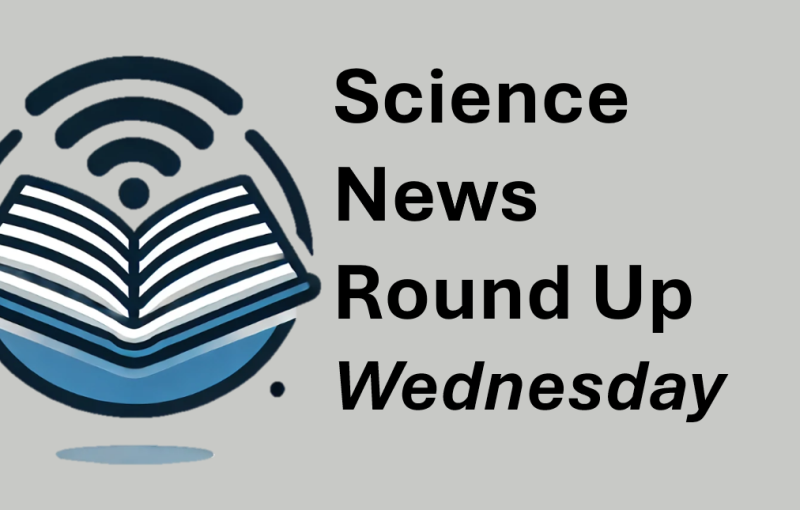
Science News Round Up, June 4, 2025
by Jon Scaccia June 4, 2025Urgent: Stay Ahead in Science Innovation!
Join thousands of science enthusiasts and professionals staying at the forefront of discovery. Subscribe for free and help sustain our self-funded delivery of essential insights every week. 🚨 Act now—share this blog to strengthen our reach and impact!
Biden’s climate-smart ag program was better than nothing. Trump killed it.
The Biden administration’s climate-smart agriculture initiative, while flawed in some aspects like overemphasizing regenerative practices with mixed evidence, still represented a crucial attempt to tackle agriculture-related emissions, a sector responsible for a significant portion of global greenhouse gases. The Trump administration’s cancellation of the program underscores a damaging disregard for climate policy, dismissing even imperfect but valuable efforts to reduce agricultural emissions, thereby emphasizing the urgent need for evidence-backed and effective measures to mitigate climate impacts within agriculture.
Big Oil Gets Slapped With Its First Wrongful Death Lawsuit
The tragic story of Julie Leon’s death during the Pacific Northwest Heat Dome has catalyzed a groundbreaking legal action against Big Oil, as her daughter Misti Leon filed a wrongful death suit against major fossil fuel companies like ExxonMobil. This lawsuit not only seeks justice for Julie’s death, which was attributed to climate change-induced extreme heat, but also sets a precedent for holding fossil fuel giants accountable for their deceptive practices and contributions to climate-related tragedies, potentially influencing future litigation and sparking discussions on criminal accountability for climate harms.
Brains vs. bytes: Study compares diagnoses made by AI and clinicians
A University of Maine study reveals that while AI models perform well in providing factual and procedural medical responses, they falter with complex “why” and “how” questions and lack the empathetic communication crucial for effective patient care. As AI technology is poised to support overburdened health care systems, the study emphasizes the indispensable role of human clinicians due to AI’s limitations in ethical and emotional domains, advocating for ethical frameworks and diverse training datasets to ensure AI enhances, rather than replaces, human caregiving.
Former OpenAI Exec Zack Kass On Why Indies Stand To Benefit From AI More Than Studios: “It Lowers The Barrier To Creating Value”
Former OpenAI executive Zack Kass sees AI as a transformative opportunity for the entertainment industry, especially for independent creators, by making content creation more accessible and cost-effective. While acknowledging concerns about job losses and intellectual property, Kass argues that the technology can spur innovation and solve global challenges, with Hollywood benefiting from reduced production costs and diversified storytelling if ethical and creative guardrails are established.
Mirror worlds: Can digital twins save humanity?
Prianka Srinivasan delves into the harrowing reality facing Tuvalu, a Pacific island nation on the brink of being swallowed by rising seas due to climate change, while highlighting its groundbreaking initiative to preserve its heritage digitally through a comprehensive digital twin. As Tuvalu grapples with the very real threat of becoming unlivable, its ambitious “Future Now” initiative seeks to ensure cultural and governmental continuity in the digital realm, serving both as a cautionary tale and a testament to resilience.
Some parts of Trump’s proposed budget for NASA are literally draconian
The Trump administration’s budget proposal for NASA significantly cuts funding, eliminating several key projects including the experimental nuclear thermal rocket engine initiative, DRACO, while redirecting resources towards commercial Moon and Mars endeavors. This shift jeopardizes innovative space technologies critical for long-term, efficient space exploration, such as nuclear propulsion, which, despite being complex and requiring substantial investment, offers promising advancements in interplanetary travel.
U.S. scientists warn that Trump’s cuts will set off brain drain
The U.S. is facing a critical threat to its scientific preeminence as federal funding cuts under the Trump administration and restrictive immigration policies are driving international talent away and leaving young scientists with no choice but to seek opportunities abroad. This shift risks dismantling the very system that has long made American research institutions the global standard-bearer, with countries like China and European nations eagerly welcoming displaced talent by offering stable funding and opportunities.
Leave a Reply